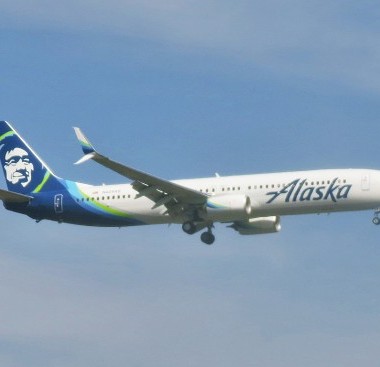Boeing sees $8 trillion jet market as climate reshapes travel
Boeing Co. predicts airlines around the world will add 42,595 jets valued at about $8 trillion over the next two decades, even as concerns over climate change affect the way consumers travel.
The US planemaker’s latest tally of industrywide deliveries over the next 20 years takes into account growing activism over jet emissions, said Darren Hulst, a Boeing vice president of marketing. He predicts a fall-off in commercial flights that are shorter than 500 miles, as governments urge consumers to switch to greener transport such as trains.
Airlines’ ability to wring more flying and profit out of their aircraft will also temper sales. Boeing estimates that carriers will find ways to squeeze about 20% more productivity out of their fleets by moving to large planes, adding denser seating patterns and keeping the airliners airborne more hours each day.
Still, Boeing expects the global fleet will nearly double through 2042, growing at a faster pace — 3.5% per year — than its 2.6% forecast for annual global economic growth. Airbus SE predicts that 40,850 new jets will enter the commercial market over that span.
Both planemakers expect single-aisle jets to dominate the market for the next two decades. Boeing sees the workhorse jets like its 737 Max and Airbus’s A320neo accounting for 76% of projected sales, compared with a 80% forecast by its European rival.
The Arlington, Virginia-based manufacturer doesn’t expect every category of jet to enjoy robust growth. Boeing reduced the numbers of air freighters and regional jets that it expected to enter the market by 1.6% and 14.6%, respectively, from last year’s forecast.
Hulst is skeptical that single-aisle jets capable of flying between continents, like rival Airbus SE’s A321XLR, will ever command more than a small niche of the market. The US planemaker doesn’t have an offering that directly competes with its rival’s long-range narrowbody.
“You run out of the capacity for bags. You run out of the ability to provide a premium product,” Hulst said. “The cargo element that is such a big part of medium- and long-haul is simply not an option.”
Similar Stories

Lufthansa Cargo and Maersk launch cooperation to support decarbonization of airfreight
View ArticlePort Authority of New York and New Jersey airports see spookily spectacular surge in October
Port of New York and New Jersey surpasses 700,000 TEUs for eighth consecutive month
View Article
airBaltic Cargo partners with cargo.one to accelerate and enhance its digital sales
View Article
Chapman Freeborn agrees partnership with Portuguese multimodal logistics specialist
View Article
Cathay is ready for the commissioning of the three-runway system at Hong Kong International Airport
View ArticleUnited Airlines Holdings Inc. upgraded To ‘BB’; outlook stable
• United Airlines Holdings Inc. is on track to generate credit measures in line with our previous upside rating threshold this year, and we expect improvement in 2025. • The…
View ArticleGet the most up-to-date trending news!
SubscribeIndustry updates and weekly newsletter direct to your inbox!





